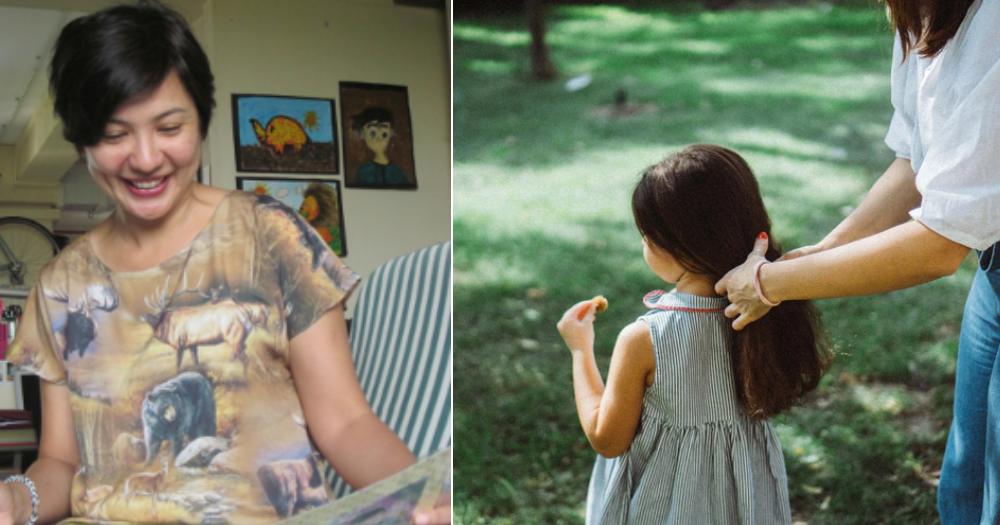COMMENTARY: "People ask why we do it, and the answer is because we can."
Lynette Chiu and her husband have been registered foster parents with the Ministry of Social & Family Development since 2008. They have one biological son.
Unlike adoption, which is a permanent arrangement, fostering is a temporary care arrangement for vulnerable children who have been abused, neglected or abandoned.
Chiu reflects on why, despite the doubts and questions that come with such a decision, she has never regretted helping children through a difficult time in their lives.
We have reproduced an updated version of her reflection, which was first published on the MSF website.
By Lynette Chiu
Ray and I have always wanted to help children.
Wanted to do more to help children
In the early 1990s, before we were married, we used to volunteer at Club Rainbow, an organization aimed to bring cheer to seriously or terminally ill children.
We volunteered as befrienders at camps or helped to do balloon sculpting at tea events. These sessions were ad-hoc and we enjoyed contributing towards them, but we wanted to do more.
After we got married, I tutored at a Children’s Home. I went down twice a week to teach and on a few weekends, Ray and I even took the kids for outings.
The time at the Children’s Home was an eye opener as I didn’t realise that there were so many children in need of care. It was very fulfilling and allowed us to volunteer on a regular basis.
Yet once again, Ray and I felt we wanted to do more than that.
Becoming a MSF-registered foster parent
Before we started our fostering journey, my husband and I had cared for a child under an informal care arrangement. That was when our son was a year old.
For the past 13 years, since 2008, we have been MSF-registered foster parents, providing a safe and nurturing home environment for children who have been abused, neglected or abandoned.
Under the MSF Fostering Scheme, we have cared for a total of four foster children, including an 8-year-old girl whom we are currently caring for. During this time, we have cared for babies and children of up to 10 years old.
Treating each child as our own
People ask how we do it, and the answer is that we just do.
We treat each child that comes into our home as ours. We love them, we teach them, we entertain them, we keep them safe and healthy, and when it is time for them to go, we say goodbye. It is hard to see a cherished child leave, but we are always thankful for the opportunity to have loved them.
People ask why we do it, and the answer is because we can.
We have an extra room in our home for any child who needs a safe place. We live simply so we have time, energy and resources to foster children.
We do this because we believe when we bring a child into our home, we are opening their eyes to another way of living. These children are often taken from trying circumstances and unless they are shown a different lifestyle, they may grow up mirroring the difficult lives that they see around them.
People ask how long we want to carry on doing it, and the answer is as long as we are able to.
There are still many children who need secure and stable environments to grow up in and one day, we hope to have more than one extra room to care for these children. We still want to do more.
Like anything worth doing, fostering has its share of sacrifices
The decision to become a foster parent has been a life changing one.
Before we embarked on this journey, there were countless questions and doubts running through our minds:
- Would we be able to do this?
- Would we be able to love the children we foster as our own?
- What happens when they leave?
- Would we be able to take the loss?
- How would our own children deal with sharing their parents, their home, their toys?
- Would our extended family want these children in their lives?
- Would the foster children’s biological parents impact our lives in any way?
However, in the end, we realised that although all these questions were important and valid, it was impossible to answer all of them. The only question that needed to be asked was of ourselves: Were we ready to commit to a child and see him/ her through a difficult time of her life?
With every child that we fostered, the questions that came with them changed. Each child came with different circumstances and challenges that we could neither predict nor control.
However, through commitment to the children, we were able to walk with them as they went through a time of their life where all they really needed was someone to be by their side.
Like anything worth doing, fostering has its share of sacrifices and compromises, but it has been one of the most enriching and meaningful experiences of our lives. We have never regretted the decision to become foster parents.
Those who are interested to find out more about fostering can contact the MSF Fostering Service at 6354 8799 or [email protected].
Top photo: Courtesy of Lynette Chiu via MSF, Eldar Nazarov/Unsplash.
If you like what you read, follow us on Facebook, Instagram, Twitter and Telegram to get the latest updates.
